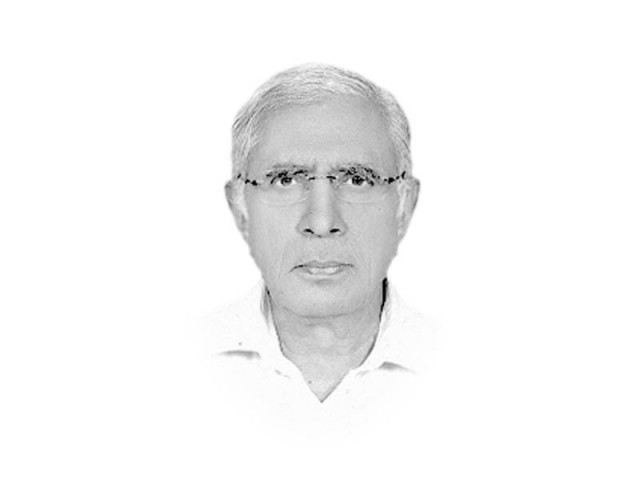A political tailspin?
Imran Khan has matured intoa formidable political assets, a leader with ability to connect with the masses in a flash

His ministers too had started behaving in the same manner. Interior Minister Chaudhry Nisar Ali Khan was masquerading as the crown prince and had become as inaccessible to the National Assembly and its members as was his boss. Important portfolio holders had turned their ministries into personal fiefdoms ignoring the principle of collective responsibility of the cabinet. Close family members, led by brother Shahbaz Sharif, were behaving like princelings, accountable to none. Favourite civil servants and media persons were lording over their respective territories granted by his Grace. In such a situation turf wars were bound to occur and they did at the cost of governance.
One can disagree with the way Imran responded to the PM’s offer of setting up a judicial commission comprising three supreme court judges to probe the allegation of massive poll rigging in the May 2013 elections but no one can take away from him the credit of forcing the government — not prepared to open even four constituencies for audit --to unwrap the entire bundle. And had it not been for Imran’s intense campaign against the defects and deficiencies in the electoral system, the NA Speaker would not have formed a 33-member committee under the chairmanship of Finance Minister Ishaq Dar to come up within 90 days with concrete proposals for electoral reforms.
Here one should not also ignore the highly responsible role played during the entire episode by the PPP (the real parliamentary opposition party), the ANP and the MQM. The three had all the political reasons to further isolate the PTI but they maintained a neutral position all through keeping enough political pressure on the ruling PML-N to let the PTI exercise its democratic right to protest by launching a long march and staging a sit-in without, of course, siding with the latter in its unconstitutional demands. Also, the Jamaat-e-Islami, which is a junior coalition partner of the PTI in the Khyber-Pakhtunkhwa provincial government, went out of its way to keep the two — the PML-N and the PTI — from coming to blows even before the march reached Islamabad.
In the 18 years that it took him to reach where he did on August 16, 2014 — the day before he went into what looked like a political tailspin — Imran Khan had matured into one of Pakistan’s formidable political assets, a leader with an uncanny ability to connect with the masses in a flash, exuding boundless charisma and displaying unquestionable integrity. Pakistan’s politics would be a lot poorer if he is allowed to disappear from the political arena just because he and his party had chosen to resign their assembly seats to pacify the charged PTI youth who seem to have refused to be mollified by the civil disobedience decision after having failed to get Nawaz to resign.
And since even resignations had failed to get this emotionally worked up youth to go back home without having achieved the goal promised by its leadership, Imran appears have been forced to decide to enter the Red Zone so as to be able to claim that he had forced the government to capitulate at least on one point. All through August 18 and a good part of August 19 Imran was seen doing his desperate best on the one hand to convince his worked up workers to remain calm while entering the Red Zone and, on the other, sending indirect signals from his podium to the government not to stop him forcibly from entering the Red Zone. He had even warned that if force was used the Army would take over.
Published in The Express Tribune, August 20th, 2014.
Like Opinion & Editorial on Facebook, follow @ETOpEd on Twitter to receive all updates on all our daily pieces.















COMMENTS
Comments are moderated and generally will be posted if they are on-topic and not abusive.
For more information, please see our Comments FAQ